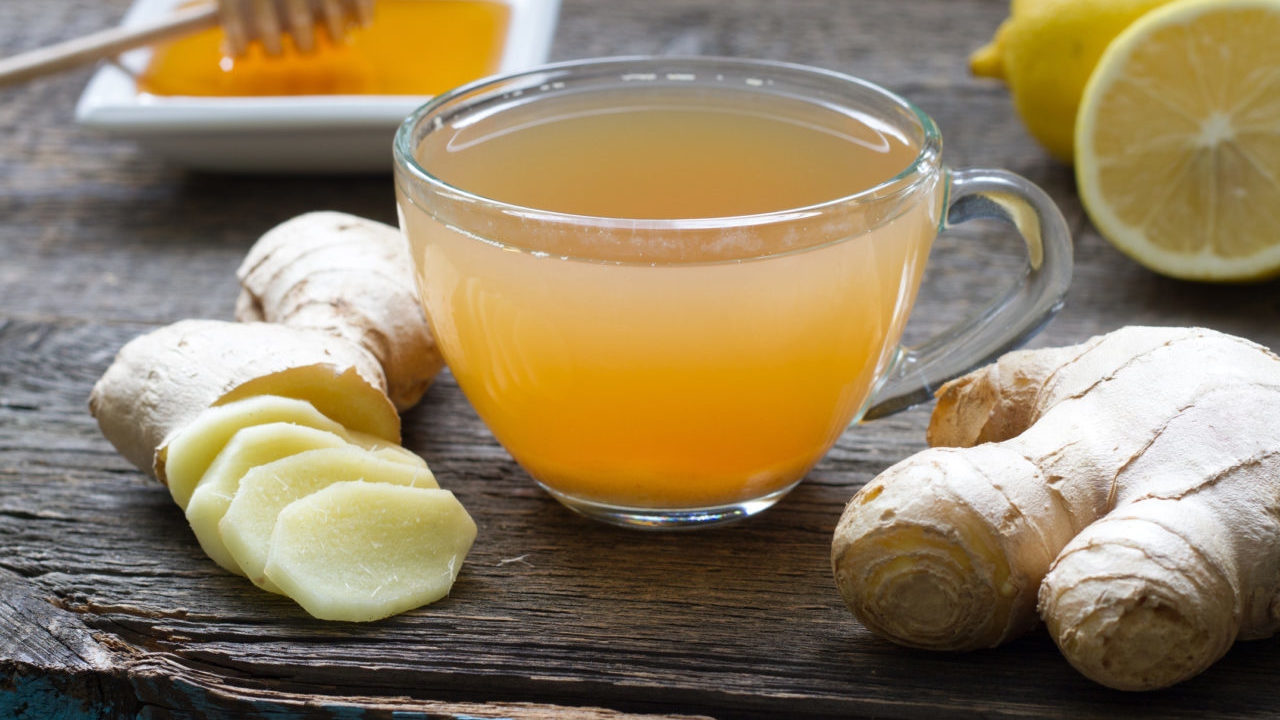Health
Benefits of Ginger
Ginger is a very popular spice that is added to many foods and is easily accessible at most grocery stores, but did you know that it was originally valued for its medicinal properties? Ginger has been used this way for over 5,000 years and can trace its origins back to the people of south-east Asia who used it for many different health ailments. Once the use of ginger spread to other countries, it became a highly valuable and sought-after item. In the 14th century, a pound of ginger was worth more than a live sheep! Nowadays, ginger is available in many different forms from fresh to dried, as extracts and oils, in capsule form, and even in lozenges and creams. Today we see ginger added to both savory and sweet foods to give them more flavor, but it also contains hundreds of compounds and metabolites that have been scientifically shown to contribute to health and healing. Thinking about giving ginger a try? Here are some of the reasons that you should!
- It supports digestion and can help relieve intestinal upset. The phenolic compounds found in ginger have been shown to relieve gastrointestinal irritation. They cause an increase in saliva and bile production, which helps food digest effectively. Ginger also helps suppress intestinal contractions that can cause cramping and discomfort, but at the same time increases motility of the intestines so food moves efficiently through our digestive tract. It also has beneficial effects on some of our digestive enzymes like trypsin and lipase.
- It can help relieve nausea and vomiting. One of the main treatments of nausea and vomiting in cancer patients is to have them chew on a piece of raw ginger. It has been shown to decrease nausea associated with motion sickness and vertigo. Ginger is also safe for pregnant women experiencing nausea and morning sickness, but remember to always check with your doctor first as some experts believe it may increase the risk for miscarriage if taken in high doses. Ginger is not considered dangerous in doses less than 1500 mg/daily in pregnant women.
- It can help with reduction of inflammation. Ginger has long been used for its anti-inflammatory properties. It has been used to treat pain associated with joint inflammation, such as with osteoarthritis. A study completed in Georgia found that participants experienced a 25% reduction in exercise-induced muscle pain with daily ginger supplementation. Anti-inflammatory compounds found in ginger include gingerols, beta-carotene, capsaicin, caffeic acid, curcumin and salicylate.
- It has been shown to promote cardiovascular health. Ginger has been shown to help decrease cholesterol, lower risk of blood clotting, and lower blood sugar. It’s possible that ginger may become a part of regular treatment of high blood pressure and diabetes, but more research is still needed. Again, always check with your doctor as ginger may have negative interactions with blood thinners and medications to lower blood pressure and blood sugar.
- It blocks bacterial growth and infections. One study found that ginger was effective in inhibiting the growth of two kinds of yeast common in mouth infections and in fighting drug-resistant bacteria. Another study found that out of 29 plant species tested, ginger was most effective at fighting fungus.
- It can help ease menstrual cramps and other aches. Some studies have found that ginger is just as effective at treating dysmenorrhea as Tylenol or Motrin! Studies have shown that ginger helps reduce both the intensity and duration of pain. Many people apply ginger topically to help relieve other aches and pains in joints and muscles, although more research is needed to prove the effectiveness of this.
- It contains an abundance of vitamins and minerals. Ginger is full of vitamin C, potassium, iron, vitamin B6, magnesium, phosphorus, zinc, folate, riboflavin, and niacin. Because ginger is consumed in such small amounts, it doesn’t have a significant amount of calories and can be added to foods and drinks to add flavor without adding extra sugar or sodium.
Even though ginger has many health benefits, in high doses you may experience side effects like mouth irritation, acid reflux and diarrhea. It is recommended to keep consumption of ginger to less than 4g/day for the general population and less than 1g/day if pregnant. I always recommend getting nutrients from a variety of whole foods, but if you choose to take a ginger supplement make sure to do your research on the brand. The Food and Drug Administration does not regulate supplements the same way it does other medications, so companies are not required to show their products are safe or effective before placing them on the market. Choose a brand you know and trust and always talk to your primary care provider before starting any new supplement or medication.
PROTEA SUPPS LINK: https://proteanutrition.com/collective/Joey
By Joey Guz, MSN, FNP
ADOFitness Coach
Always consult with your PCP before starting any exercise/nutrition program and follow safety instructions he/she recommends before beginning this program which entails nutrition, supplements and/or workouts.














